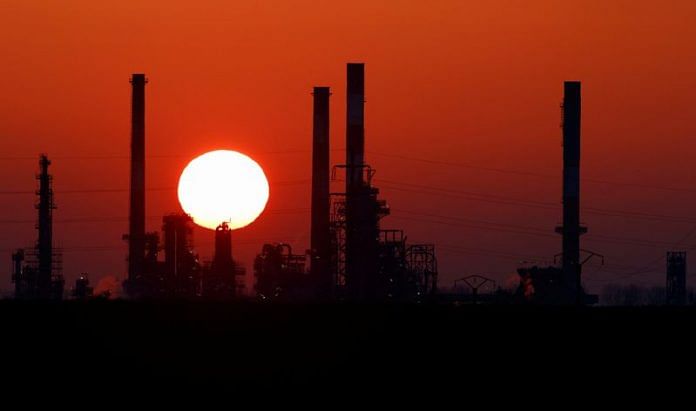By Noah Browning
LONDON (Reuters) – Oil prices dipped slightly on Friday despite the OPEC+ group’s decision to leave its production policy unchanged, keeping benchmarks on track for weekly losses on China economic growth fears and efforts to establish a ceasefire in the Middle East.
Brent crude futures were down 61 cents, or 0.7%, at $78.09 a barrel by 1331 GMT and U.S. West Texas Intermediate crude futures fell 64 cents, or 0.8%, to $73.18.
The Brent benchmark had approached $85 a barrel in Monday trading.
Two OPEC+ sources on Thursday said that the group had kept its output policy unchanged and will decide in March whether to extend the voluntary oil production cuts that are in place for the first quarter.
The Organization of the Petroleum Exporting Countries (OPEC) and allies led by Russia, together known as OPEC+, has output cuts of 2.2 million barrels per day (bpd) in place for the first quarter, as announced in November.
“What has been already been made clear last year is that the reversal of those cuts will be gradual,” said UBS analyst Giovanni Staunovo, adding that the bank expects an extension into the second quarter.
Supporting oil prices was the U.S. Federal Reserve’s decision to keep the benchmark overnight interest rate in the 5.25-5.50% range and comments by Fed Chair Jerome Powell, saying interest rates had peaked and would move lower in the coming months.
Lower interest rates would reduce consumer borrowing costs, which can boost economic growth and oil demand.
However, oil prices were still heading for weekly losses of about 5% after unsubstantiated reports of a ceasefire between Israel and Hamas caused prices to settle more than 2% down on Thursday.
Mediators are awaiting a response from Hamas to a proposal drafted last week with Israeli and U.S. spy chiefs and passed on by Egypt and Qatar for the war’s first extended ceasefire.
A pause could ease political risk looming over Gulf and Red Sea shipping lanes, which are key for global energy flows.
Meanwhile, concern over China’s economic recovery continued to linger, with the International Monetary Fund forecasting that the country’s economic growth would slow to 4.6% in 2024 and decline further in the medium to about 3.5% in 2028.
(Reporting by Noah Browning, Emily Chow and Jeslyn Lerh; Editing by David Goodman)
Disclaimer: This report is auto generated from the Reuters news service. ThePrint holds no responsibilty for its content.



